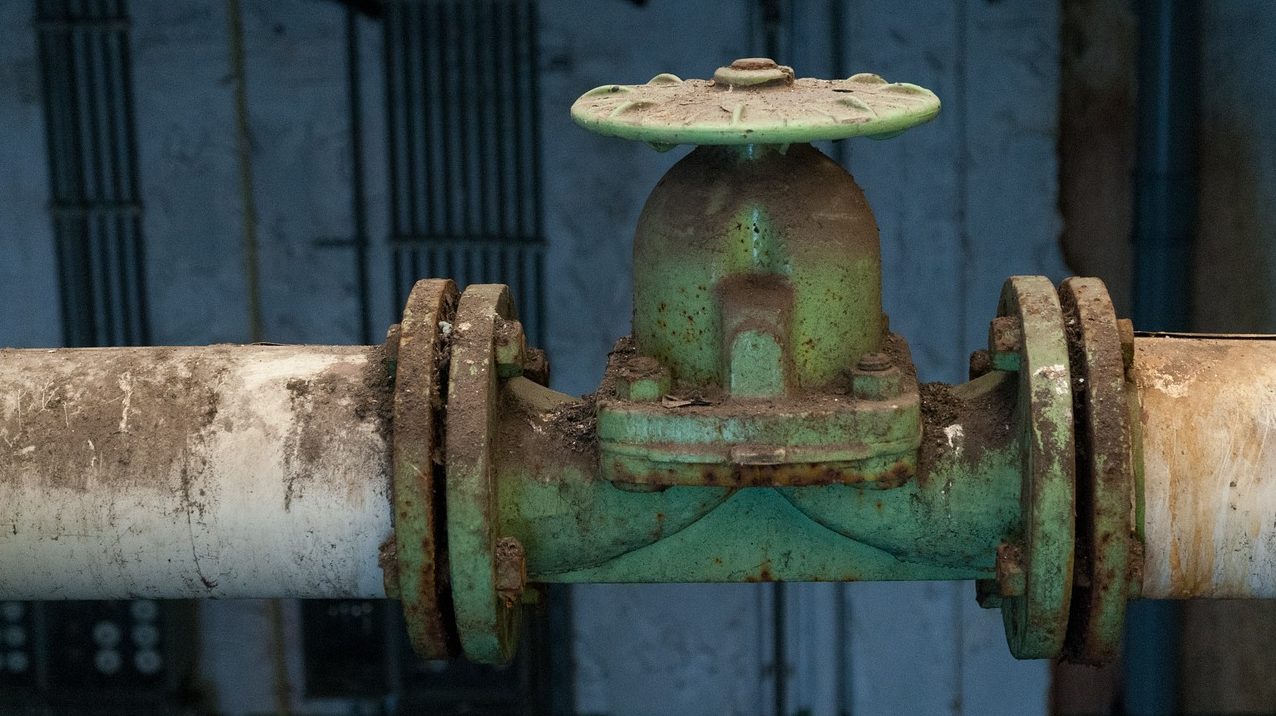Ukraine-Russia Standoff Threatens Flow of Natural Gas to Europe
Europe, with Washington's help, is looking for a substitute for Moscow's gas; the US has turned to Qatar, but perhaps one day natural gas from Israel will be transferred through the proposed EastMed pipeline
US President Joe Biden will host Qatar’s Emir Sheikh Tamim bin Hamad Al Thani at the White House on January 31 for a meeting that may have major implications for how Washington and its European allies make their next moves amid tension with Russia.
Dr. Alex Coman, an economic specialist at Reichman University in Herzliya in central Israel, told The Media Line that the issue of supplying Europe with gas and global energy security will definitely be on the agenda at the White House meeting.
“Absolutely, there’s no doubt that both are really anxious to do that,” he said.
Tension is building up on two fronts between Russia and the US.
With Moscow amassing tens of thousands of its troops near its border with Ukraine, Washington and its European allies are trying to shore up energy contingency plans in the event that Russia invades its neighbor.
Fears are mounting that a Russian military incursion into Ukraine will lead Washington and its European allies to impose crippling sanctions on President Vladimir Putin and his country, which will most likely be met with Moscow putting a halt to deliveries of Russian gas to Europe.
The standoff over Ukraine threatens the flow of natural gas that Europe relies on for heat and to power factories.
Russia is a main source of energy to the Old Continent, with Europe importing about 40% of its gas supply from Moscow.
The Biden administration reportedly already has approached Qatar, as well as other energy-producing countries, to seek assistance should there be a drop-off in Russian-supplied energy.
Simon Henderson, Baker fellow and director of the Bernstein Program on Gulf and Energy Policy at the Washington Institute for Near East Policy, told The Media Line that even if Qatar steps in, it can’t replace Russia.
“Qatari supplies, even if available, would help only marginally,” he said.
With global gas supplies already limited and QatarEnergy’s liquified natural gas shipments locked into long-term supply contracts, Henderson says the tight market means higher prices and he is “unclear how high and how long” this will last.
Qatari supplies, even if available, would help only marginally
Gas from the US and elsewhere is helping offset fears of a midwinter cutoff in Europe, and many observers say a Qatar gas injection is only a temporary solution.
“Doha sees its main natural market as Asia and would not want to be distracted from this,” Henderson said.
Coman says that Europe should embrace green energy, which is cleaner and more reliable; he adds that the energy crisis is the result of the failure of European green policy.
“Germany was leading in nuclear energy, which was both green and reliable but, because of the Fukushima nuclear disaster in Japan of 2011,” Coman says, it decided to stop.
“Right now, Europe is in a green crisis and the solution, in the short term, is to buy gas from elsewhere and use ships to deliver it to western Europe,” he explained.
Europe is facing record-high prices of natural gas and electricity, exacerbated by Russia exporting less gas than usual, which keeps European reserves at rock bottom and has sent European officials scrambling for an alternative to the Russian gas.
Russia supplies about one-third of Europe’s natural gas. To reduce its reliance and dependency on Russian gas, Coman says, Europe should look elsewhere. The elsewhere that Coman is referring to could be the EastMed pipeline which, once it is up and running, will transfer natural gas from Israel to Europe through Greece and Cyprus.
The $5 million project was announced in 2016, with a plan for it to be completed in 2025, but no financing has been secured for it yet.
“In the medium turn, we are talking about a gas pipeline from Egypt to Israel to Cyprus going all the way to Europe and this pipeline would be a phenomenal option/solution because they would have an alternative, bypass, circumvent of the Russian gas, and of course it could be a lifeline for” the EastMed pipeline group, Coman explained.
“This will take time to do, but in the longer term the realization would be that we need to go back to nuclear energy,” he added.
Coman proposes linking Europe with Egyptian, Israeli and European electric grids.
However, the Biden administration recently informed Israel, Greece and Cyprus that it no longer supports the proposed EastMed natural-gas pipeline from Israel to Europe.
But in a perfect world, Henderson says, Europe would be importing its natural gas from an unlikely source – Iran.
“In a world without politics the alternative logical source of gas for Europe would be Iran, whose reserves are second only to Russia,” he said.


